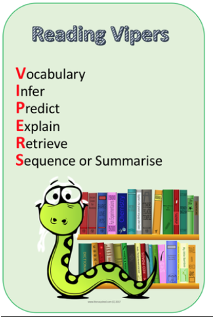Reading at Thames View

As a school, we believe that creating a culture of reading is a vital tool in ensuring our children are given the best life chances. Cultivating readers with a passion for a wide range of materials will ensure that children’s love of reading will extend far beyond the classroom and allow them to build on their skills independently through a real curiosity and thirst for knowledge.
We believe that the following principles are at the forefront of our approach to reading.
- Reading is challenging
We develop our understanding and command of the English language through our experience of and exposure to challenging texts
- Reading is varied
We recognise that reading comes in many forms and essential to everyday life
- Reading is explored
We use ‘close reading’ to interrogate texts through rigorous study
- Reading is inspirational
We are enthused and stimulated by what we read and use the ideas and techniques that we have experienced when reading to inform our own written work
VIPERS
 Throughout the school, we use Literacy Shed VIPERS. Children need to be aware of the reading skills they are using in order to give them a greater understanding of what makes a well-rounded reader. Instead of having a long wordy objectives, we can break them down into 6 simple words using Reading Vipers.
Throughout the school, we use Literacy Shed VIPERS. Children need to be aware of the reading skills they are using in order to give them a greater understanding of what makes a well-rounded reader. Instead of having a long wordy objectives, we can break them down into 6 simple words using Reading Vipers.
The Reading Vipers can be used by both KS1 and KS2 with a little adaptation. The main difference being in the ‘S’.
KS1 - Sequence
KS2 – Summarise
In Thames View Primary School, we use whole class reading as our main form of direct teaching. This allows all children to engage in high quality texts and is in place fully by KS2. As the children enter KS1 and become more confident readers, whole class reading structures are developed and put into place.
What do we read?
Throughout the children's time at Thames View Primary School, they will have opportunities to listen, respond and engage with a wide variety of key texts, authors and poets. The texts the children are working with is constantly being reviewed to ensure that we keep up to date with modern literature.
How can you help your child?
To support their reading journey your child will bring different sorts of books home from school. When your child is in the early stages of learning to read you can help by encouraging them to sound out the letters in words and then to ‘blend’ the sounds together to make a whole word. You can hear how to say the sounds correctly by searching on YouTube for ‘Letters and Sounds Pronunciation’ video.
Sometimes your child might bring home a picture book that they know well, encourage your child to tell you the story out loud; ask them questions about things that happen or what they think about some of the characters in the story. We assess the children’s progress regularly and send home books that are matched to their ability. Children are always encouraged to read novels and other materials in addition to their school reading book to supplement their reading habits.

